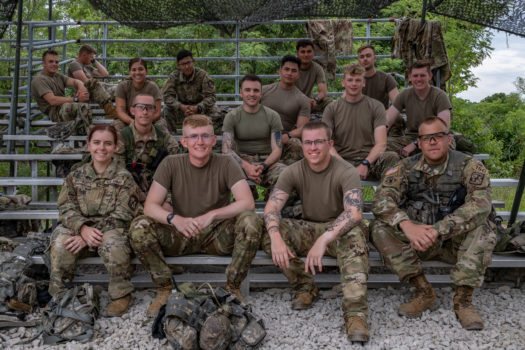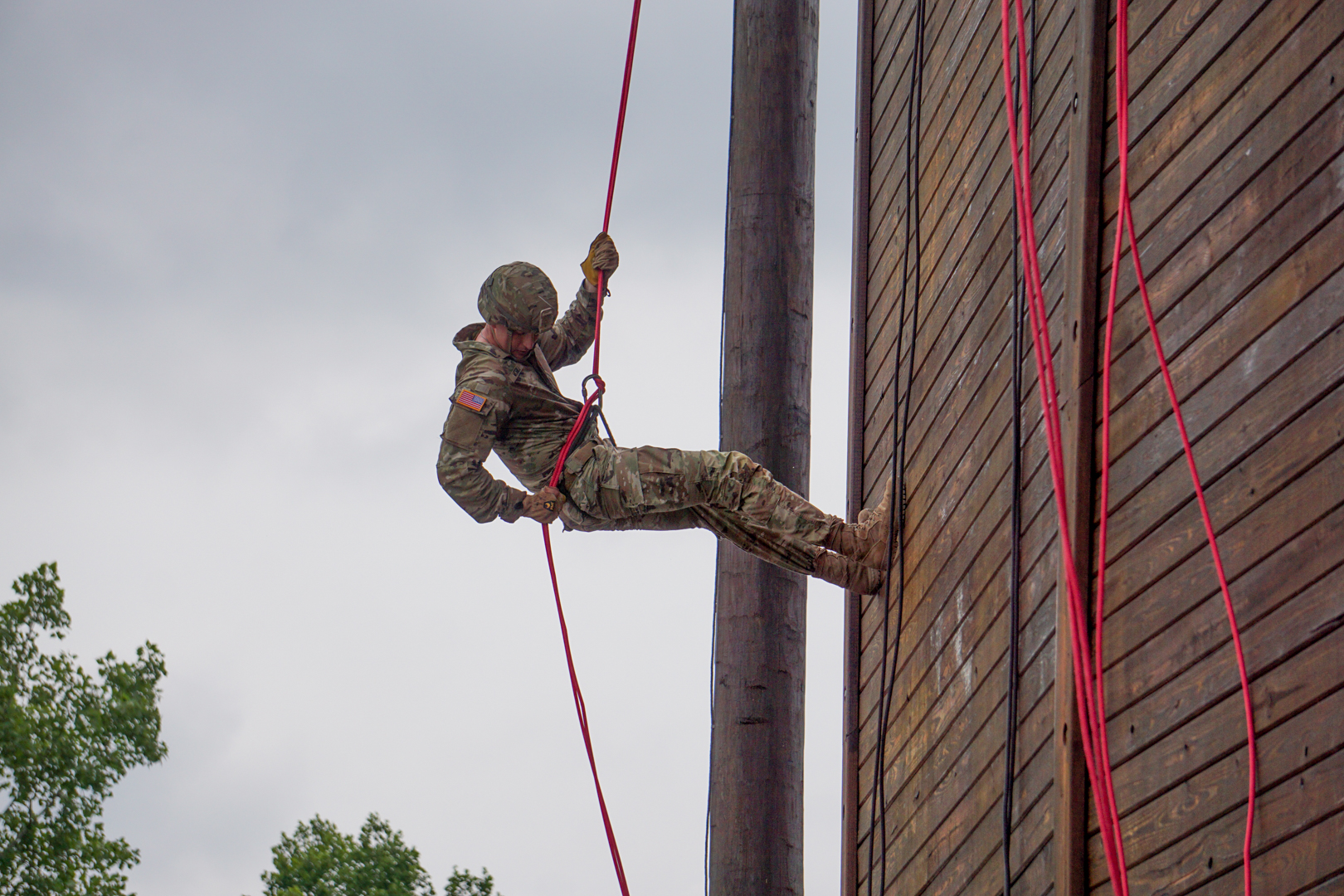A telltale sign of the average Army ROTC Cadet participating in Cadet Summer Training is their youth and relative inexperience with the military; CST being their first major excursion into Army life.
However, there are those among the ranks who have called the Army home for much longer. Among a sea of Cadets attending CST was one that had a history with the Army going back over a decade. The man’s uniform was covered in patches denoting his past experience, which told stories of his time serving and deploying as an Army engineer.
“Everyone refers to me as either grandpa, the geriatric Cadet, old man, dad, all the nicknames you could think of giving a 33-year old man hanging out with a bunch of 22-year old men and women,” said Cadet Timothy Rhodes.
Rhodes, an Army ROTC Cadet from the University of Cincinnati, first joined the Army following high school, starting a career that would carry him into his adult life.
“I’ve served for the past 15 years,” said Rhodes. “I joined when I was 18. I’m currently a Master Sergeant in the active component and closing in five years on retirement.”
Rhodes, who had attained the second highest rank among enlisted personnel, didn’t find himself ready for military retirement quite yet, and instead saw possibilities before him.

“Big picture is, I don’t know what I want to be when I grow up,” said Rhodes. “Becoming an officer is kind of that next echelon, or next level, of leadership that I want to impact and make a difference with, and it extends my life’s lifespan within the Army and DOD in general.”
Rhodes had his sights on another 10 years of military service once he became an officer, since that is the minimum service requirement for officers before they can retire.
Once I commission as an officer, I’ll commission at 16 years in the Army,” said Rhodes. “At the end of the day, I will wind up doing 26 years at minimum before I’m able to retire.”
Rhodes at first didn’t see the appeal or value of an ROTC program. Now, however, after joining the program himself despite his trepidations, sees it differently.
“Army ROTC, before I was exposed to it, I kind of pictured it as just a simple summer camp and just college students wearing a uniform walking around in circles,” said Rhodes. “Once I became immersed in the ROTC program at my university, I really got to see the level of detail that the Cadre, the professors military science, the assistant professors military science, really put into molding these young men and women to be our next future Army leaders.”
It might be thought that someone with the status and experience Rhodes has attained might have much to teach but not much to learn at CST, especially in regards to his younger peers. Rhodes did not see it that way.
“I constantly ask all these young men and women random questions about how to do X, Y, or Z because at the end of the day, I’m an enlisted individual and I’m trying to learn how to be an officer just like them,” said Rhodes. “They teach me how to be a better officer. I teach them how to Army soldier; pack the rucksack, sleep properly, fueled hygiene, all the things that I’ve learned and developed over my tenure in the Army.”
With his many years of experience, Rhodes had obtained a plethora of wisdom in what the Army is and what it means to serve.
“I would say that the Army is forever adapting and morphing into something new every single day,” said Rhodes. “If you have opinions and biases about what the Army was or is, throw those out the window and let the Army show you. A lot of people think that this is just the military, it’s an easy way out, etc, but it’s not. It’s the only profession that I know that you can join a team and retire with a full pension at 38 years old. As long as you have a good mindset and open mindset and willingness to work with others, you’ll be successful.”




